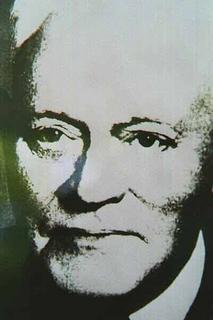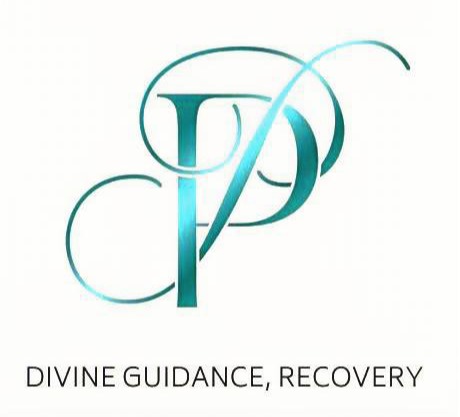From the Big Book of A. A.©

To Whom It May Concern:
I have specialized in the treatment of alcoholism for many years.
In late 1934 I attended a patient who, though he had been a competent businessman of good earning capacity, was an alcoholic of a type I had come to regard as hopeless.
In the course of his third treatment he acquired certain ideas concerning a possible means of recovery.
As part of his rehabilitation he commenced to present his conceptions to other alcoholics, impressing upon them that they must do likewise with still others. This has become the basis of a rapidly growing fellowship of these men and their families. This man and over one hundred others appear to have recovered.
I personally know scores of cases who were of the type with whom other methods had failed completely.
These facts appear to be of extreme medical importance; because of the extraordinary possibilities of rapid growth inherent in this group they may mark a new epoch in the annals of alcoholism. These men may well have a remedy for thousands of such situations.
You may rely absolutely on anything they say about themselves.
Very truly yours,
William D. Silkworth, M.D.
We believe, and so suggested a few years ago, that the action of alcohol on these chronic alcoholics is a manifestation of an allergy; that the phenomenon of craving is limited to this class and never occurs in the average temperate drinker. These allergic types can never safely use alcohol in any form at all; and once having formed the habit and found they cannot break it, once having lost their self-confidence, their reliance upon things human, their problems pile up on them and become astonishingly difficult to solve.
Frothy emotional appeal seldom suffices. The message which can interest and hold these alcoholic people must have depth and weight. In nearly all cases, their ideals must be grounded in a power greater than themselves, if they are to re-create their lives.
If any feel that as psychiatrists directing a hospital for alcoholics we appear somewhat sentimental, let them stand with us a while on the firing line, see the tragedies, the despairing wives, the little children; let the solving of these problems become a part of their daily work, and even of their sleeping moments, and the most cynical will not wonder that we have accepted and encouraged this movement. We feel, after many years of experience, that we have found nothing which has contributed more to the rehabilitation of these men than the altruistic movement now growing up among them.
Men and women drink essentially because they like the affect produced by alcohol. The sensation is so elusive that, while they admit it is injurious, they cannot after a time differentiate the true from the false. To them, their alcoholic life seems the only normal one. They are restless, irritable and discontented, unless they can again experience the sense of ease and comfort which comes at once by taking a few drinks-drinks which they see others taking with impunity. After they have succumbed to the desire again, as so many people do, and the phenomenon of craving develops, they pass through the well-known stages of a spree, emerging remorseful, with a firm resolution not to drink again. This is repeated over and over, and unless this person can experience an entire psychic change there is very little hope of his recovery.
On the other hand- and strange as this may seem to those who do not understand-once a psychic change has occurred, the very same person who seemed doomed, who had so many problems he despaired of ever solving them, suddenly finds himself easily able to control his desire for alcohol, the only effort necessary being that required to follow a few simple rules.
When I need a mental uplift, I often think of another case brought in by a physician prominent in New York. The patient had made his own diagnosis, and deciding his situation hopeless. has hidden in a deserted barn determined to die. He was rescued by a searching party, and. in desperate condition, brought to me. Following his physical rehabilitation, he had a talk with me in which he frankly stated he thought the treatment a waste of effort, unless I could assure him, which no one ever had, that in the future he would have the “will power” to resist the impulse to drink.
His alcoholic problem was so complex, and his depression so great, that we felt his only hope would be through what we then called “moral psychology,” and we doubted if even that would have any effect.
However, he did become “sold” on the ideas contained in this book. He has not had a drink for a great many years. I see him now and then and he is as fine a specimen of manhood as one could wish to meet.
I earnestly advise every alcoholic to read this book through, and though perhaps he came to scoff, he may remain to pray.
William D. Silkworth, M.D.
Home | A.A. Preamble | 36 A.A. Principles | Drinking Problem? | How It Works | FAQ | A.A.’s Roots | Gratitude | Helpful Recovery Resources | 7th Tradition | A.A. Meetings | Daily Reflections | Practice These Principles | Liberty Article | Silky | Big Book Musts | Working the Steps | Personal Stories | Original A.A.Manuscript | Sponsorship | Finding Strength at PP | Songs of Recovery | Blog
Any A.A. literature referenced on this website, or quoted verbatim by a sharer in our meeting room, is copyrighted by Alcoholics Anonymous World Services, Inc. The opinions and experiences expressed are those of the individuals and do not necessarily represent the A.A. program as outlined in the “Big Book” ALCOHOLICS ANONYMOUS.
